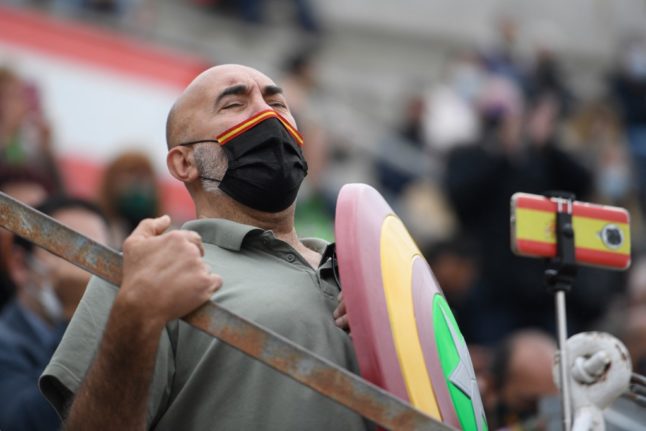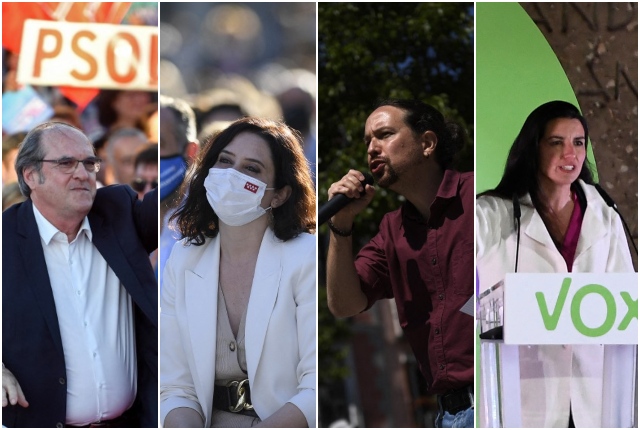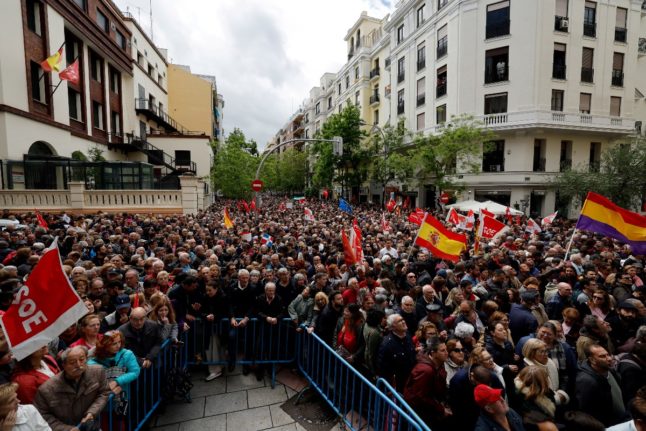The snap election in the Madrid region, which will take place on May 4th, was called last month by regional leader Isabel Díaz Ayuso, a rising star of the right-wing Popular Party (PP), after breaking up her ruling coalition with the centrist Ciudadanos.
Ever since, the battle for Madrid has been dominating Spanish headlines for weeks before the campaign formally opened on April 18th.
In a sign of the ballot’s importance, Pablo Iglesias, leader of far-left Podemos, stepped down as a deputy prime minister in Sanchez’s coalition government to run as the party’s candidate.
“More than a just region is at stake,” said University of Zaragoza political scientist Cristina Monge.
“It’s also the party leaders taking part, the issues and the media coverage all of which evokes a national election campaign.”
Ever since the poll was announced, Sanchez has joined a weekly rally in Madrid alongside Socialist candidate Angel Gabilondo, a dour former education minister.
With the Socialists unlikely to oust the PP from power, Sánchez has focused on warning voters against the “threat” posed by Vox, the far-right faction which propped up Ayuso’s previous government and looking to make further inroads next week.
Polls show the PP, which has run the region for over 25 years, winning most seats but falling short of an absolute majority, meaning it will likely fall back on the support of Vox to govern.

‘Freedom’
Pablo Simon, a political analyst at Madrid’s Carlos III University, said Sánchez’s involvement could be “a double-edged sword” in that it “doesn’t necessarily mobilise the left but definitely mobilises voters on the right” who fiercely oppose his leftist government.
And Ayuso has made criticism of Sánchez’s handling of the pandemic a focus of her campaign, prompting Gabilondo to remind her last week that he was actually the party’s candidate.
Adopting “freedom” as her slogan, she has consistently fought the Sanchez government’s instructions, instead imposing one of Spain’s loosest curfews and defying recommendations to shut bars and restaurants.
“Ayuso benefits from her strong opposition to the Spanish government over the coronavirus issue, which favours the PP” in this vote, said Antonio Barroso of Teneo consultants.
But Sánchez will have to pay the price for getting personally involved in the campaign, analysts warn.
If the PP gains further ground in Madrid, it will take advantage of that on the national political scene where it serves as Spain’s main opposition — and will “hold him responsible”, Simon said.
But Barroso said a victory for Ayuso after running such a hardline campaign could open an “internal fracture” within the PP which has become more centrist in recent months under current leader Pablo Casado.
Such a fracture “could favour Sánchez”, making him appear like “a moderate” to centrist voters, Barroso said.



 Please whitelist us to continue reading.
Please whitelist us to continue reading.
Member comments